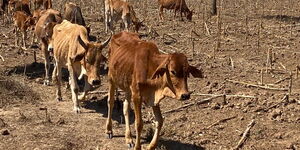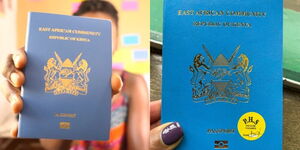Kenya has opened a window to the import of powdered milk from Uganda after lifting a ban, signalling a potential easing of trade tensions between the two East African nations.
The Kenya Dairy Authority announced the move in response to the upcoming dry months of July-August and December-February, when Kenya typically faces a deficit in liquid milk production, leading to increased prices in the market.
This decision comes shortly after the Ugandan administration, led by Yoweri Museveni, imposed an additional Ksh3 tax on every kilogram of Irish potatoes exported to Uganda, sparking a trade dispute between the two countries.
The ban on certain milk products from Uganda was initially imposed in May 2023 and temporarily lifted in August of the same year. However, despite this recent development, restrictions remain in place for certain companies.
This move comes amidst a backdrop of strained relations dubbed a "trade war" between Kenya and Uganda. The conflict stems from disparities in the dairy trade, exacerbated by the implementation of the East Africa Community (EAC) Common Market in 2010.
Following the establishment of the common market, Uganda's milk exports to Kenya surged, reaching a value of $96 million (approximately Ksh12.8 billion) in 2018.
The influx of cheaper Ugandan dairy products has often left Kenyan producers dissatisfied, prompting discussions on protective measures for the local dairy industry as early as 2019.
In 2020, Kenya imposed a full import ban on milk from Uganda, a decision that was met with opposition and negotiation.
Finally, in October 2022, Kenyan President William Ruto announced the lifting of the ban, citing potential benefits for both countries.
Last year, President Ruto clarified the rationale behind the ban on certain milk products from Uganda, highlighting concerns over processing practices.
"We have stopped the importation of milk from neighbouring countries for companies that are processing powdered milk instead of buying from farmers," he stated, underscoring the government's commitment to supporting local farmers.
Kenya's dairy imports from Uganda witnessed a significant increase in the year leading up to June 2023, driven by both heightened production in Uganda and growing demand from Kenyan processors.
According to data from the Uganda Dairy Development Authority (DDA), Uganda exported dairy products worth approximately Ksh29.2 billion to Kenya during this period, representing 83 per cent of its total dairy exports. This substantial figure solidifies Kenya's position as Uganda's largest dairy market by a considerable margin.
Despite these recent developments, tensions persist in the dairy trade relationship between Kenya and Uganda.
The reopening of the window for powdered milk imports marks a step towards reconciliation, but challenges remain in achieving a mutually beneficial balance in trade dynamics.












